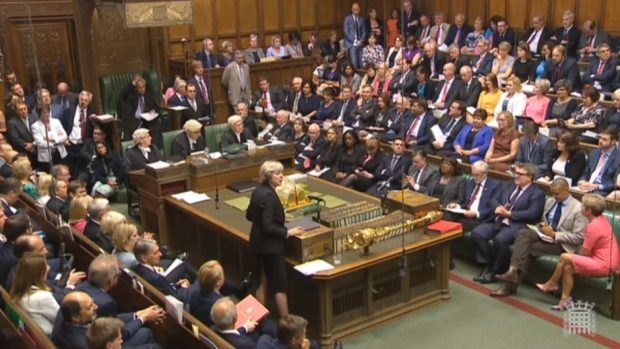Theresa May faces another showdown with MPs over her Brexit strategy in the Commons today.
The prime minister has tabled a motion for debate that asks MPs to “reiterate” their support for her negotiating position with the EU.
But a number of amendments to the motion have been tabled which would give MPs the chance to alter the Brexit process.
Labour has tabled an amendment that would require the Government to either put her deal to a vote by February 27 or allow Parliament to take control of the process.
Tory grandee and former chancellor Ken Clarke has tabled an amendment which would allow MPs to vote for their preferred Brexit outcome by ranking options in order of preference on a ballot paper under the alternative vote system.
An amendment from Labour MP Roger Godsiff calls for an extension of the two-year Brexit negotiation period to allow for a second referendum.
Another tabled by Western Isles MP Angus MacNeil calls on Mrs May to revoke the Article 50 letter informing the EU of Britain’s intention to leave.
And a cross-party initiative backed by Conservative Anna Soubry and Labour’s Chuka Umunna demands that the Government publish its most recent official briefing on the implications of a no-deal Brexit for business and trade.
The amendments are not be binding on the Government but if approved would put pressure on Mrs May to change tact.
It will not be known until the outset of the debate which amendments will be voted upon, as the power to select amendments for debate rests with Speaker John Bercow.
However, even if the Government manages to successfully fend off attempts by MPs to change the motion there are rumblings that a large section of the Conservative Party will not vote for it.
Eurosceptic Tory MPs are objecting to a sentence in Mrs May’s motion that says the House of Commons “reiterates its support for the approach to leaving the EU expressed by this House on 29 January 2019”.
They point out that the Commons voted for two things on January 29 – to remove the controversial Irish “backstop” proposal from the Withdrawal Agreement, a decision they approve of, but also to rule out a “no-deal” Brexit.
They say removing no-deal would “remove our negotiating leverage in Brussels”.
